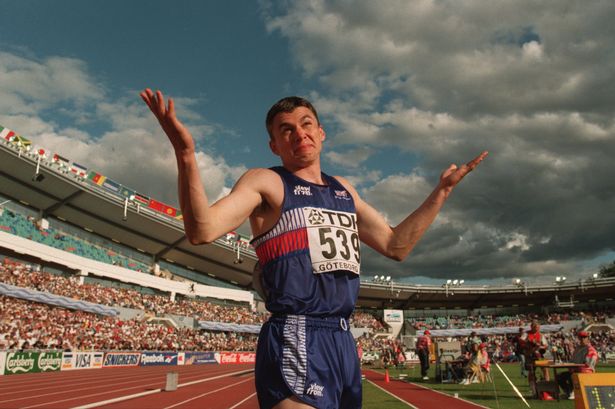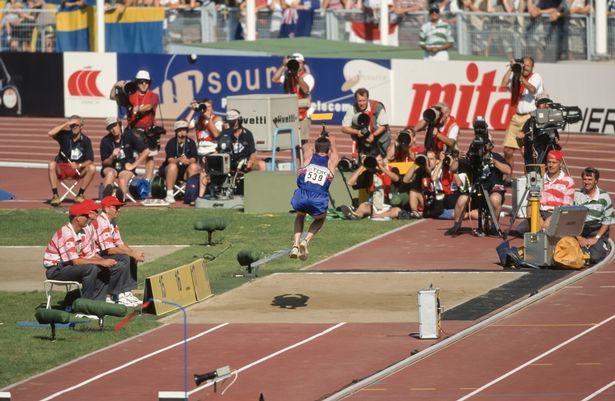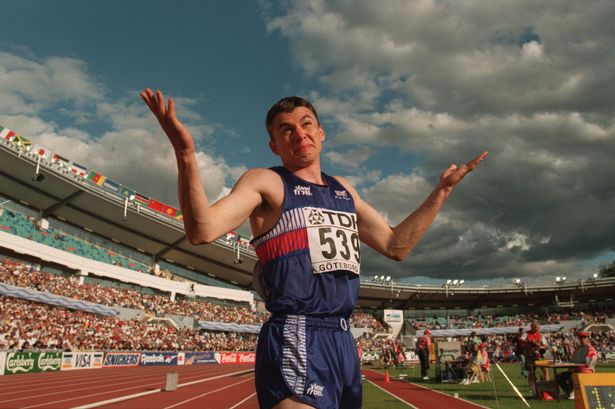Thirty years ago today Jonathan Edwards jumped 18.29m, a distance that no one else has been able to match, though he insists he is at peace with Britain’s only world record being beaten soon
06:00, 07 Aug 2025

Jonathan Edwards will never tire of being called a world record holder. But 30 years on from his greatest hop, skip and jump in Gothenburg, he no longer watches the latest generation of pretenders from between his fingers.
With a “quantum leap” in shoe technology that has seen records tumble across the track and in the field, Edwards has made peace with the fact his mark will eventually be beaten. Equally he admits: “I’d be upset… It would be pretty cool to be on my deathbed and still a world record holder.”
And yet heading towards another World Championships in Tokyo, there seems little chance of the only global record still in British hands being broken.
“It’s an amazing thing, I still have to pinch myself,” Edwards says. “I’ll still be out walking with my wife and go ‘I’ve jumped farther than anyone else in the world.’ It’s just an amazing feeling and I never get tired of it. But I’m at the stage now where, if you go back 10 years I’d have been really nervous.”
READ MORE: How Josh Kerr celebrated British title as world champion makes mission admissionREAD MORE: Dina Asher-Smith takes British 200m title before revealing she has quit Texas for London
Those who worked next to Edwards during his time as an analyst on TV remember entire studios falling silent when the likes of Christian Taylor were gearing up for an attempt at eclipsing his 18.29m.
American Taylor came within eight centimetres a decade ago, while Spain’s Jordan Diaz Fortun posted the third best distance on record, 18.18m, in Rome last summer.
Except Edwards insists stepping away from being on screen helped him to be more at peace with the moniker being taken – even if the wait goes on into a fourth decade.
“When I was still working in the sport, doing the media stuff, I felt a much closer connection to it and it was almost as if everyone was looking for my reaction, a schadenfreude type thing,” he recalls.
“That was always a bit bizarre. But now I feel a sense it’s been an incredible bit of time and it’s not diminished if it goes now. I’d like to hold on to it for as long as possible but I’m resigned to the fact it will be broken some time soon. That’s fine.”

With the passing of time it can easily be forgotten that Edwards entered the 1995 Worlds as the record holder, jumping 17.98m three weeks before in Spain, and with his first jump became the first man to break 18m, with 16cm in change.
Then came the second, unbeatable attempt, elevating triple jump into a new stratosphere. Between leaps Edwards remembers: “I kind of had no control over my emotional state in the sense I was still ready to jump and I had a big smile on my face.”
As for the celebrations, they were muted and he almost went to bed hungry. “I was in drug control for a long time did various interviews and didn’t leave until midnight,” he recalls.
“I got out of the stadium and there was a McDonald’s that looked open but people were finishing off their meals. They wouldn’t let me in. There was a coach inside, Leif Alnes, who is Karsten Warholm’s coach now, trying to explain who I was to let me in. But they wouldn’t.”
Eventually he went back to his main sponsor Puma’s hotel – with whom he has recently released a long-form podcast detailing his career – and tucked in to whatever food they had left.
And while he harbours no real envy towards the current generation of athletes, the physics graduate would have loved to have experimented with the technology that is propelling the latest crop to performances never seen before.

“I understand the biomechanics and it would have been a really interesting challenge. It’s amazing that the sport hasn’t had the technological advances compared to other sports.
“It really has stayed a little bit in the dark ages. There have only been incremental changes up until recently. But these spikes and shoes have been a quantum leap,” he says, though he feels the impact is more pronounced for those on the track than in the field.
“It’s much more difficult in the jumps than it is in hurdles. There isn’t the same force going through the plate and cushion.
“My thing was running very fast and maintaining that speed through the jumps. My jumping ability per se wasn’t outstanding but I could marry it with speed.”
“I loved a hard feeling, an immediate response off the ground. Finding the right frequency to give you something back would have been tricky. But at least I’ve got an out when someone breaks my record.”









